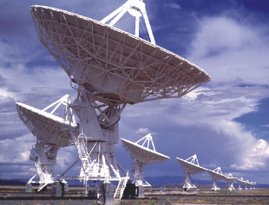I, on the other hand, view guessing what will happen as a kind of high-stakes gambling... and we know how much fun gambling is! If only I could win in Vegas...
On August 27, 2005, I stuck my neck out and said:
"New Orleans is about to be destroyed."
You can still hear the reaction echoing through Eternity: "No it isn't. You just make things up."
This is what had happened over the previous four years.
I had read "Drowning New Orleans" in Scientific American in the October 2001 issue. This article said, for example:
"A major hurricane could swamp New Orleans under 20 feet of water, killing thousands."
"The boxes are stacked eight feet high and line the walls of the large, windowless room. Inside them are new body bags, 10,000 in all. If a big, slow-moving hurricane crossed the Gulf of Mexico on the right track, it would drive a sea surge that would drown New Orleans under 20 feet of water. "As the water recedes," says Walter Maestri, a local emergency management director, "we expect to find a lot of dead bodies."
There was this graphic in the article.
 It showed the path of the simulated hurricane passing near Lake Pontchartrain.
It showed the path of the simulated hurricane passing near Lake Pontchartrain.Now, four years later, on Friday, August 26, news on the Net was showing the projected path of Katrina.
Hmm, I said, that looks familiar... it was in... Scientific American...
So I got on my Scientific American Digital account and searched for "New Orleans", and there it was. So I reread the article, and the next day, Saturday, stuck my neck out.
On Monday, Katrina had passed and the levees still held, and people said "See, see! You make things up!" And I was really glad to be wrong.
Then the levees failed.
Unfortunately, the problem was not that I was making things up, just reciting sutras into the ear of a horse, which in English would be something like
Scientific American is one of the greatest resources for broadening science knowledge (even if many professors are clueless and think "it is for high school students"... several particularly stupid profs actually said that to me 25 years ago... more exactly, two profs, independently, walked past my desk, saw the copy on my desk, rolled their eyes, and said, "Oh, that is for high school students!" Over time, I realized they did not know how the sun produces light, even though they were doing research in photosynthesis, did not know what causes the aurora, and just did not know a lot of science. The reason they were, without provocation of any kind, being insulting about things that were none of their business, was that the copy on my desk was a threat to them. They were trying to hide what they did not know... It is criminal to try to drag other people down to your level, which is exactly what they tried to do. I have read SciAm cover-to-cover for the last 30 years or so, and I will pit what I know against what they know any day...). Most of the content is free at http://www.sciam.com
It's not that I memorize everything, just collect concepts. The articles can now be retrieved at the click of a mouse. But you have to know that the ideas exist in order to search for them.
Imagine if I had listened to the profs. I would have wound up as ignorant as they were, still are, and will be until they die.
Evolution clearly shows that characteristics are advantageous or disadvantageous depending on the environment. We find ourselves in an unusual environment. For most of human history, change was so slow that being conservative more or less worked (except when it meant doing the same stupid thing over and over again). What is happening now is that change is so rapid that we can expect technology to advance hundreds of times in our lifetimes. Types of jobs come and go, and they are coming and going faster and faster. The original "computers" were humans who did calculations. There used to be TV repairmen. Many factory jobs used to be performed manually. Humans used to design things empirically, but they are increasingly aided by computers, and sometimes the computers evolve the designs for themselves. Biotech could in theory have been done by human "calculators"... if you were willing to spend thousands of years on a simple problem like determining the order of subunits in a piece of DNA, but now such determinations rely on very fast computing. In the course of recent events, we have seen that many people simply cannot change. The only rational solution is to stop wasting our time trying to change them, leave them behind, and move on.


No comments:
Post a Comment